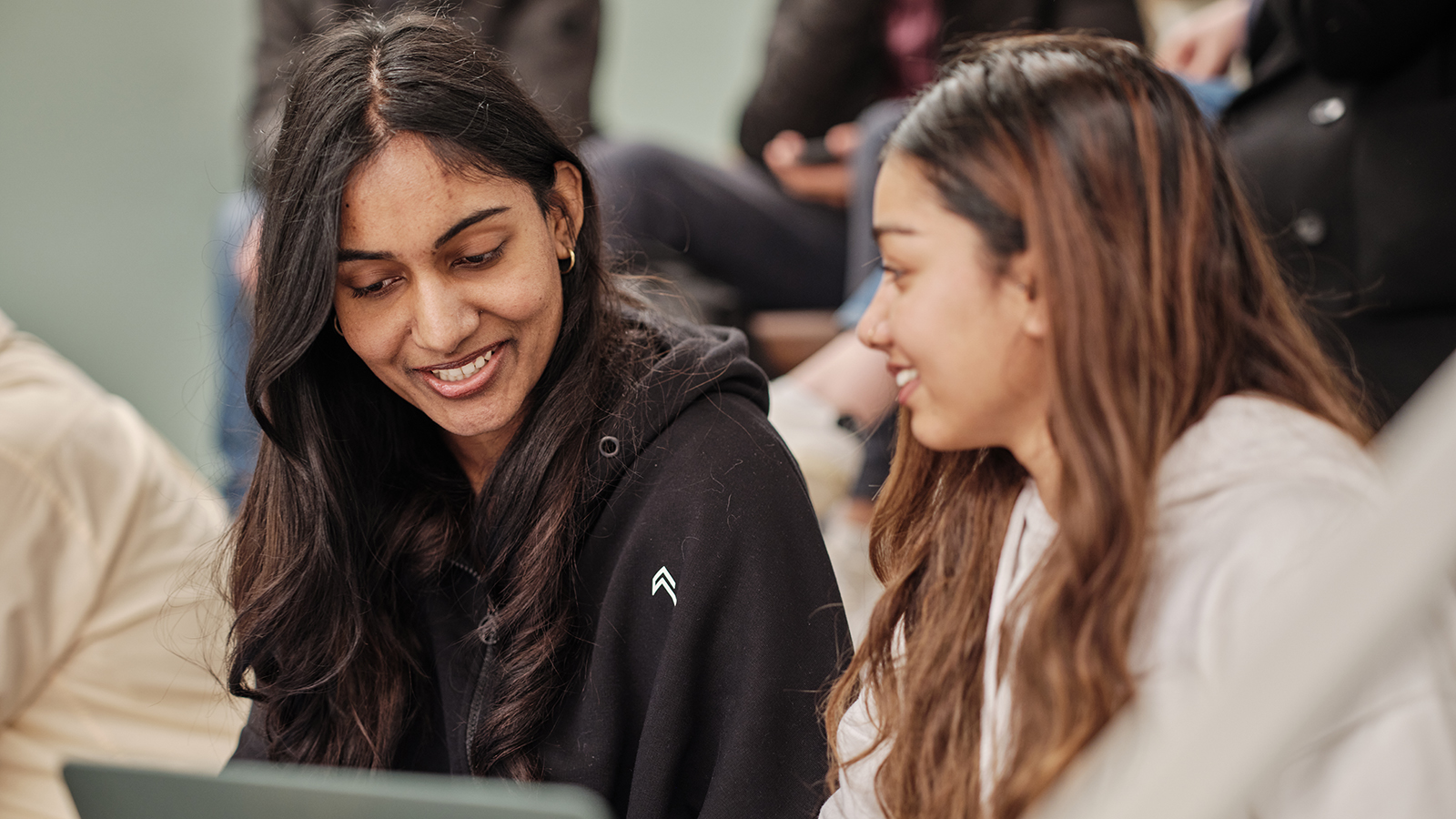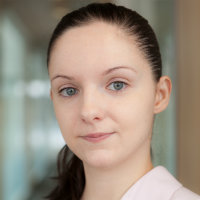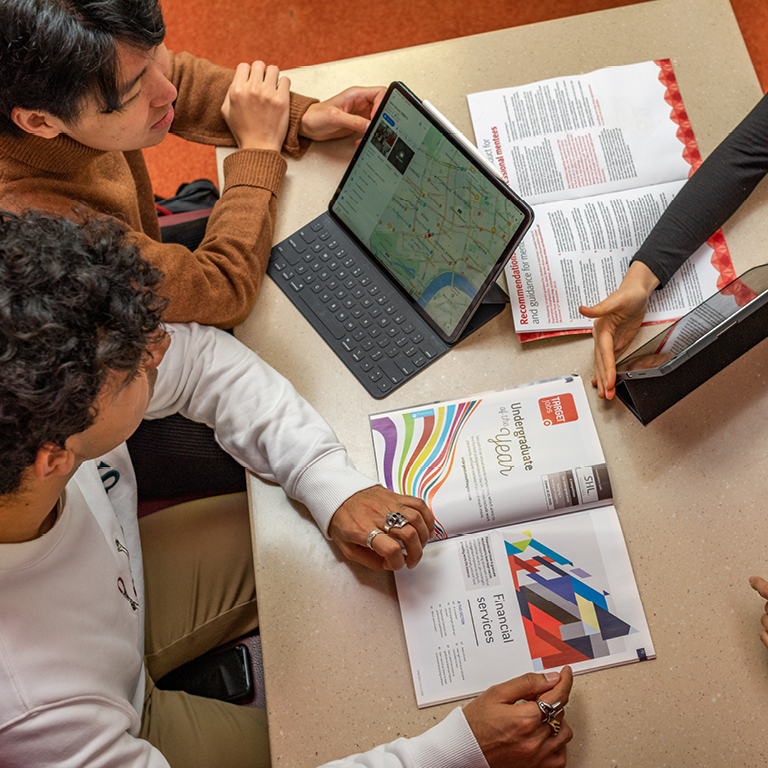Accounting and Finance (Foundation)

Key information
UCAS code: N3N4
Duration: 4 years
Attendance mode: Full-time
Fees: £8,000 (more information)
Location: Northampton Square
Start of programme: September 2024
Application deadline: January 2024
Entry year: Showing course information for 2024
The Foundation Year programme provides you with an entry to the BSc Accounting and Finance course
Overview
Accounting and Finance (Foundation) Who is it for?
The Foundation Year is designed to prepare UK students for the subjects that will be covered in more depth throughout the rest of your degree.
The training modules that will be covered include the core subject areas of Mathematics, Probability and Statistics, Accounting and Finance, Economics, IT and Computing.
Course objectives
The Foundation Year is a one-year full-time programme that provides an entry route to the BSc Accounting and Finance. These modules have been carefully designed to include material that you will come across should you successfully proceed onto the BSc Accounting and Finance undergraduate degree programme.
The Foundation accounting course has been designed to familiarise you with training material that you will study in more depth in later years of the Accounting and Finance degree programme
Teaching staff
Course director:

Accreditation details
Course content
The Foundation course has been designed to familiarise you with material that you will study in more depth in later years of the degree programme. The modules covered are:
Course structure
Modules
Core Modules
Foundation Mathematics
This will cover A-level Mathematics and topics from A-level further Mathematics. As you will have already studied A-level mathematics (or equivalent) we will focus more on the later topics such as calculus. The material in this module will prepare you for the mathematical techniques you will encounter throughout your degree.
Foundation Probability and Statistics
This module will assume that students will arrive with no knowledge of probability or statistics. The module will start with basic concepts such as summary statistics and basic probability and will develop these concepts to more advanced topics such as confidence intervals, hypothesis testing, regression and probability distributions. The material in this module will prepare you for the Introduction to Statistics module in year 1.
Introduction to Economics
This module will cover fundamental topics in both macro and micro economics. We will assume that you have not covered this material before and this module will help you prepare for the first year undergraduate Economics module. This module will have an integrated study skills module which will develop your ability in such areas as note taking, essay planning, mind maps, etc. which will help both with this module and the rest of your studies and later employment.
Introduction to Finance and Accounting
This module will introduce you to concepts such as interest rates, discounted cash-flows, different types of investments and company accounts. The material in this module will prepare you for the undergraduate Introduction to Finance module and accounting modules you will take in year one. It will also provide real world skills for the analysis of companies and investments.
Introduction to Microsoft Office Suite
This module will help with all your future studies where Microsoft Office products are used, as well as providing real life skills which will be attractive to employers
Download course specification:
Accounting and Finance (Foundation) [PDF]Assessment methods
Some assessment is by coursework which you take home and complete with the aid of your notes. For year 0, there will be continual assessment using class tests but no large formal exams.
Percentage of the course assessed by coursework
The approximate percentage of the course assessment, based on 2023/24 entry is as follows:
Balance of assessments
Showing highlight precentaging of course examinatons and practial of each year of study
Assessment methods
Overall workload
Most contact hours take the form of lectures. A number of tutorials, exercise classes and surgery hours are scheduled during the year.
Approximate study time based on 2023/24 entry is as follows:
Foundation workload
Study type
Term dates
Academic year
For a full breakdown of the current and forthcoming academic year view our term dates page.

Study abroad
This is an option on the BSc Accounting and Finance course, to which you can progress upon successful completion of the Foundation year.
Partner institutions include:
Asia and Australasia
Australia
-
Queensland University of Technology
Located in the bustling city of Brisbane, QUT was the first Australian university to gain 'triple crown' accreditation (EQUIS, AMBA and AACSB).
-
University of Queensland
Located in the popular Australian city of Brisbane, the University of Queensland features in the top 100 of 3 of the major rankings (QS, THE and ARWU).
-
University of Sydney
As Australia’s first university, the University of Sydney has an excellent long-standing reputation and is also ranked best student experience in Australia.
-
RMIT University
Giving you the chance to study in Melbourne, Australia's 2nd largest city, RMIT is one of Australia's original educational institutions. Their well-established business school allows students to choose from a wide-range of subjects.
China
-
Renmin University of China
Located in Beijing, Renmin Business School is both EQUIS and AACSB accredited. Their MBA programme is ranked in the top 50 in the world by the Financial Times.
-
Shanghai Jiao Tong University
You will take classes from the Antai College of Economics and Management, which was the first business school in mainland China to have been triply accredited by AACSB, EQUIS and AMBA. They have Bachelor programmes in Economics and Finance.
Hong Kong
-
Chinese University of Hong Kong
CUHK was ranked the most innovative university in Hong Kong in 2016 (Reuters). The 137 hectare campus overlooking Tolo Harbour houses a range of facilities such as world-class libraries, art museums, music halls, a swimming pool, sports fields, tennis courts, squash courts, a water sports centre and gymnasiums.
-
University of Hong Kong
HKU is consistently ranked in the top 50 world universities (Times Higher Education World University Rankings). You will be studying at their Faculty of Business and Economics.
-
Hong Kong University of Science & Technology
HKUST is ranked 4th in the QS Asian University Rankings 2016. HKUST Business School was the first school in Asia to be awarded dual accreditation by AACSB and EQUIS. It offers 11 undergraduate business programmes.
Singapore
-
National University of Singapore
NUS is ranked 1st in the QS Asian University Rankings 2016 and is one of the top 25 world ranked universities (Times Higher Education World University Rankings). More than 1,000 exchange students visit NUS each year.
-
Nanyang Technological University
Nanyang is ranked 54th in the Times Higher Education's World University Rankings. You will have the chance to study at one of Asia's most prestigious universities in the heart of Singapore.
-
Singapore Management University
SMU was founded in 2000 by the government of Singapore, modelling itself on an American style university structure. SMU has over 180 exchange partner universities around the world.
South Korea
-
Seoul National University
SNU was founded in 1946 as the first national university of Korea. SNU Business School was also the first business school in Korea to be certified by the Associate to Advanced Collegiate Schools of Business (AACSB).
Vietnam
-
RMIT Vietnam Campus
Living and studying at RMIT Saigon South campus in Ho Chi Minh City will give you great opportunities to get immersed into a dynamic, multicultural and intriguing city.
Europe
Austria
-
Vienna University of Economics and Business
WU has triple accreditation, one of only two German-speaking universities belonging to this group. They have a well-established exchange programme, with around 240 partner universities around the world.
Denmark
-
Copenhagen Business School
Copenhagen Business School often abbreviated and referred to as CBS, is a public university situated in Copenhagen. It is considered one of the most prestigious business schools in Western Europe and the world. CBS has been engaged in student mobility for decades and has a large number of partner universities all over the world. They send over 1,100 students to study at partner universities every year
France
-
ESCP Europe, Paris campus
Like Bayes, ESCP is triple accredited (EQUIS, AMBA and AACSB). The Paris campus is located in the centre of the city. The Masters in Management, from which you will take classes, is currently ranked 4th in the Financial Times rankings (2016).
-
ESSEC Business School
Established in 1907, ESSEC is one of the leading institutions in Europe for business education. Their BBA was the first programme in France to receive the prestigious AACSB and EQUIS accreditations.
Germany
-
Technische Universität München
TU Munich was named as the number one university in Germany in the QS World University Ranking 2016.
-
University of Mannheim
The University of Mannheim Business School is highly ranked and has an excellent reputation. You will be studying modules from their Bachelor degrees in Business Administration and Business Education in either German or English.
Italy
-
Bocconi University
Based in Milan, Bocconi is a triple accredited school (EQUIS, AMBA and AACSB) and is ranked 6th in the Financial Times European Business Schools Ranking 2016.
-
LUISS Guido Carli
LUISS Guido Carli is a private Italian university located in the heart of Rome. They are currently EQUIS and AMBA accredited and Luiss was actually the first Italian institution to have all its management programs accredited by EQUIS back in 2015, from the bachelor's degree program to the Master in Business Administration, as well as additional master's, specialization, doctoral, and business training programs. We are also currently ranked 59th in the QS ranking for Business and Management and our Master in Management is ranked 1st by the Financial Times based on career progress.
Norway
-
BI Norwegian School of Management
BI is the only Norwegian university with triple accreditation and has student exchange agreements with more than 200 institutions in 45 different countries.
Spain
-
ESADE Business School
The school is located in Europe’s most international city and Spain’s second largest city, Barcelona. Like Bayes, ESADE is triple accredited (EQUIS, AMBA and AACSB).
-
IE Business School
Situated in the heart of Madrid's financial district, IE Business School is ranked 1st in Spain and 5th in Europe (FT European Business School rankings 2015).
The Netherlands
-
Rotterdam School of Management, Erasmus University
RSM is consistently ranked in the top 10 business schools in Europe and has 'triple crown' accreditation (AACSB, AMBA and EQUIS). You will study all modules in English.
The Americas
Argentina
-
Universidad Argentina de la Empresa
Located in the heart of Buenos Aires, UADE has exchange agreements with 40 partner universities around the world. You will take modules from the undergraduate Global Management degree.
Canada
-
HEC Montreal
Like Bayes, HEC Montreal is triple accredited (EQUIS, AMBA and AACSB) and was the first school in North America to achieve this. There are opportunities to study in French or English.
-
Smith School of Business - Queen's University
Queen's Smith School of Business has a rich history dating back to 1841 and is consistently ranked as one of Canada's leading universities. It welcomes over 300 exchange students every year from more than 40 countries.
-
Ivey Business School, Western University
Ranked in the top 100 for Financial Times MBA Rankings, Ivey School of Business provides a competitive combination of world-class teaching and modern facilities.
-
Sauder School of Business, University of British Columbia
UBC is one of Canada's leading research universities and is consistently ranked in the top 40 of the world. Located 30 minutes from the heart of down-town Vancouver it attracts students from more than 140 countries world-wide.
-
University of Waterloo
For 19 years in a row, Waterloo has been named Canada's most innovative university in the Maclean's annual university reputational rankings. The Department of Statistics and Actuarial Science at Waterloo is among the top academic units for statistical and actuarial science in the world and is home to over 900 undergraduate students.
Chile
-
Universidad de Chile
Based in the cultural city of Santiago, the Universidad de Chile is one of only 10 Latin American universities ranked among the world’s top 500. It is ranked 6th in the QS Latin American Ranking 2016.
USA
-
Emory University, Atlanta
Located near downtown Atlanta, Emory University Goizueta Business School's BBA programme is currently ranked No. 15 by both Bloomberg BusinessWeek and U.S. News & World Report.
-
Ross School of Business, University of Michigan
The Ross School of Business has one of the top undergraduate business programmes in the USA, ranked #4 (US News & World Report, 2016). You will take modules from their Bachelor in Business Administration.
-
Robert H. Smith School of Business, University of Maryland
Located in College Park, eight miles from The White House and downtown Washington, D.C. you will be studying at the Robert H. Smith School of Business whose undergraduate programme was ranked number 19 in the USA (2016 U.S. News & World Report).
-
McCombs School of Business, University of Texas at Austin
One of the largest business schools in the US, McCombs is ranked the 6th undergraduate business programme in the 2017 US News and World Reporting Ranking.
-
McIntire School of Commerce, University of Virginia
The McIntire School of Commerce is regarded as one of the best business schools in America. Their UG programme is #5 in the USA (Bloomberg Business Week, 2016). They are partnered with a select number of business schools around the world, with Bayes being one of them.
Placements
This is an option on the BSc Accounting and Finance course, to which you can progress upon successful completion of the Foundation year.
Fees & funding
UK/Home fee
September 2024 entry
£8,000
The Foundation Programme is for home fee paying students only.
Tuition fees are subject to annual change.
Tuition fee increases
Fees for each subsequent year of study are subject to an annual increase to take account of City's increased costs of delivering educational services.
This increase will be 5% for each subsequent year of study. You should expect your fee to increase by this amount and budget accordingly.
Scholarships & bursaries
Careers
The BSc (Hons) Accounting and Finance degree, to which you can progress upon successful completion of the Foundation year, is structured to ensure you leave the programme with highly marketable knowledge, ensuring you develop the practical skills and professionalism for your career.
The degree produces well-rounded graduates with skills that are relevant to a wide range of careers in business, finance and accountancy. Find out the types of positions our graduates have gone on to work in
Alumni stories
Entry requirements
The Foundation Programme is for home fee paying students only. If you think you may still be eligible based on your circumstances, for example you have EU Settlement/Pre-Settlement Status, Indefinite Leave to Remain or Refugee Status, please email bayesug@city.ac.uk.
If you are an international student please refer to INTO City for information about the International Foundation Programme.
Standard home offer
-
A LevelB (Maths) BBGCSE English Language grade 4 (C)
-
International Baccalaureate (IB)30 pointsoverall with minimum 5 in Standard Level or 4 in Higher Level Maths and English.
UK qualifications
A-Level: B (Maths) BB
We accept all foreign language A Level subjects, and such subjects are considered for entry even if it is the applicant’s native language.
GCSE Requirements: GCSE English Language grade 4 (C)
If you are studying General Studies or Critical Thinking these subjects will not be included in any offer condition.
IB: 30 points overall with 5 in Higher Level Maths (either Maths Analysis & Approaches or Maths Applications & Interpretation) and English at either Higher Level 4 or Standard Level 5.
Contextual admissions
We apply a contextual admissions process for UK undergraduate applicants who have been in care, attend a low performing school, live in an area where few students go to university, or are the first generation of their family to enter Higher Education.
Those who are eligible may receive a conditional offer with reduced entry requirements, typically up to two grades lower for A-levels and one grade for the International Baccalaureate Diploma.
English language requirements
If your first language is not English, we require evidence of English language proficiency. Minimum requirements are:
- GCSE: Grade C or 4
- IGCSE: Grade C
- O-Level: Grade C
- A-Level: Grade C
- Language Cert International ESOL: Language Cert B2 Communicator High Pass
- IELTS (Academic, UKVI or IELTS Indicator): 6.0 overall with no less than 6.0 in any sub-test
- IELTS One Skill Retake: Must be taken within six weeks of previous IELTS test. Accepted for one sub test where all other components and the overall score have been met
- TOEFL (Test centre or iBT Special Home Edition): 92 overall (24 Writing, 23 Reading, 22 Speaking, 21 Listening)
- Pearson Test of English (PTE) Academic: 59 overall with minimum of 59 in each sub test
- International Baccalaureate: Grade 5 at Standard level or Grade 4 at Higher level
- Cambridge English Advanced (also known as Certificate in Advanced English): Grade C (180 overall) at CEFR Level C1 with minimum 170 in each sub test
- Cambridge English Proficiency (also known as Certificate of Proficiency in English): Pass qualification (all grades accepted)
- Cambridge English First (also known as Certificate of First in English): Grade A (180-190) at CEFR Level C1
- Vitnemal: English grade 5
- French Baccalaureat: 14/20 in English
- Malaysian GCE O Level (SPM-1119 syllabus only): grade A
Student life
Study at Bayes and take advantage of all that London has to offer - from entertainment and nightlife to West End theatres, museums and world-famous shopping districts and markets.
See our Undergraduate Student Life page for further information.
-
Have a question about student experience at Bayes?
Talk one-on-one with a student who is currently studying at Bayes.
Apply
All applications should be made through UCAS, the Universities and Colleges Admissions Service. Applications are made via Apply, UCAS's online application system.
Terms and conditions
Students applying to study at Bayes Business School are subject to City, University of London's terms and conditions.
More information about applying to BayesApply via UCAS
- Institution code: C60 (Bayes Business School and City, University of London)
- Course code: N3N4 (BSc Accounting and Finance Foundation Year)
You can find more information at UCAS and in the UCAS Handbook.
Please note that you can only apply for either the BSc (Hons) Accounting and Finance Foundation Year (N3N4) or the BSc (Hons) Accounting and Finance degree (NN43). When we review your application, we will decide which course you are most suited for based on your predicted or obtained results.
Contact us
Speak to one of our staff from UG's programmes teams.




